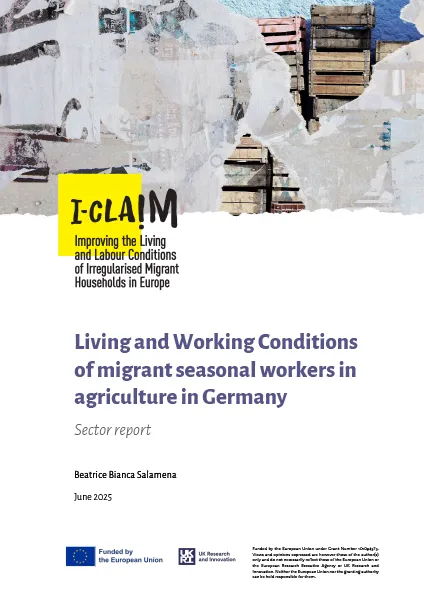Living and Working Conditions of migrant seasonal workers in agriculture in Germany
Beatrice Bianca Salamena
How to cite:
Salamena, B.B. (2025). Living and Working Conditions of migrant seasonal workers in agriculture in Germany. I-CLAIM. DOI: https://zenodo.org/records/15775486
Living and Working Conditions of migrant seasonal workers in agriculture in Germany
Beatrice Bianca Salamena
This report presents the overview of the key findings from Work Package 5 within the larger research project I-CLAIM: Improving the Living and Labour Conditions of Irregularised Migrant Households in Europe, specifically focusing on the working conditions of migrant seasonal workers in the agricultural sector in Germany. It provides the contextual analysis of migrant labour within this sector, highlighting the challenges and dynamics faced by workers. Additionally, the report explores the living experiences of migrant workers in rural and agricultural settings, offering insights into their working environments.
The report also reflects on the ethnographic methodology applied in this research, providing a description of the issues faced. The ethnographic study reveals that irregularities in the German agricultural sector manifest through semiformal agreements, oral contracts, and other non-standard forms of employment that bind workers to employers’ promises. These forms of irregularities exploit workers’ educational disparities and financial insecurity, creating a high level of dependency. This dependency is further exacerbated by substandard housing provided on the farms. Additionally, there is a lack of occupational safety and health protection, as well as a constant linguistic dependency on the employer regarding access to healthcare in the event of illness or accidents. The case study presented in this research, conducted on a farm in the Brandenburg region, illustrates the labour law-violating conditions under which EU-citizens are employed in agriculture.
